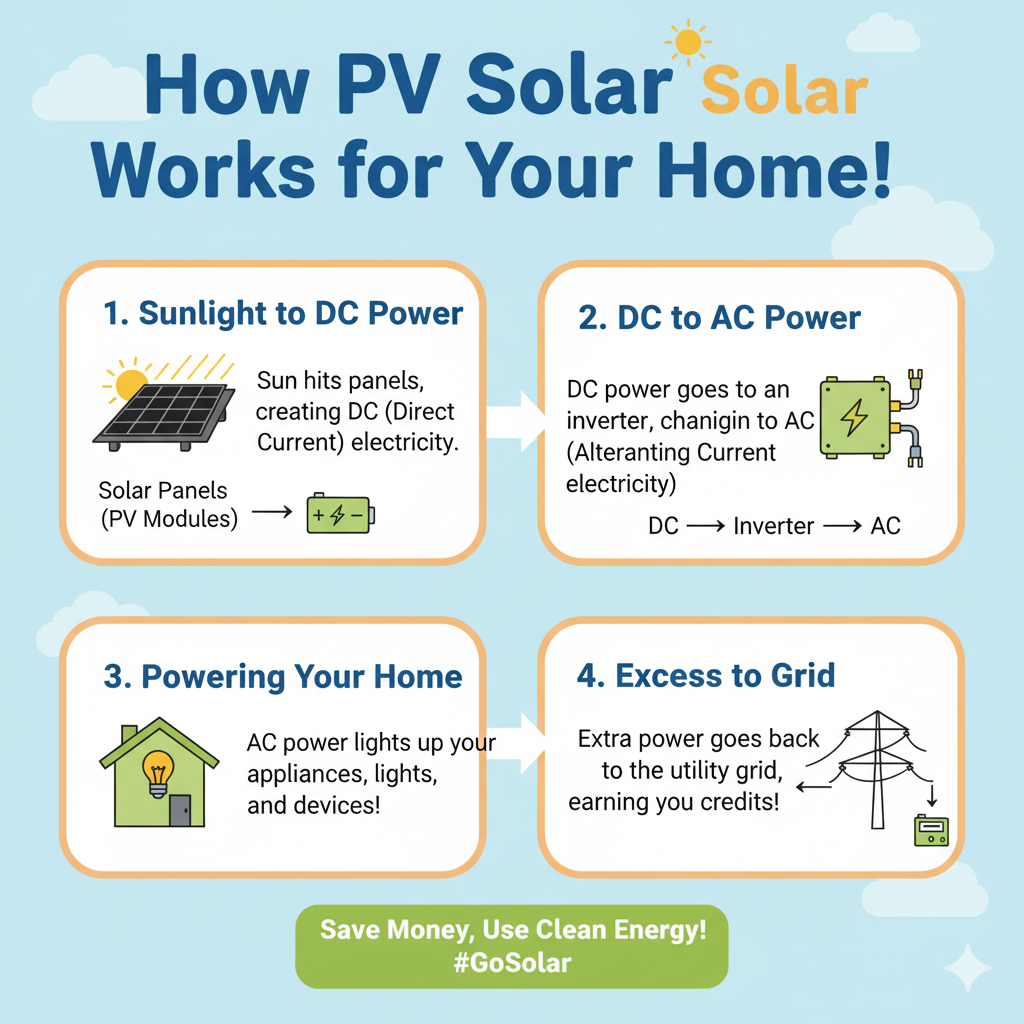What is Solar Energy?
Solar energy is the radiant heat and light from the sun, harnessed to provide power and warmth. It is a clean, renewable energy source that can be converted into electricity using photovoltaic (PV) panels or used for heating through solar thermal systems. This energy can be used for everything from powering homes and vehicles to heating water and providing light.
Solar Panels Capture Sunlight:
The journey begins on your roof, where solar panels (photovoltaic or PV panels) are installed. These panels are made up of many individual solar cells, typically made from silicon. When sunlight (photons) hits these cells, it excites electrons within the silicon.
Generating Direct Current (DC) Electricity:
This excitation of electrons creates an electric current, specifically a Direct Current (DC) electricity. This is the same type of power found in batteries. However, most household appliances and the electrical grid use Alternating Current (AC) electricity.
Inverter Converts DC to AC:
The DC electricity from the solar panels flows to an inverter. The inverter is a crucial piece of equipment that converts the DC electricity into usable AC electricity. There are different types of inverters, including string inverters (for groups of panels) and micro-inverters (one per panel), each with their own advantages.
Electricity Powers Your Home:
Once converted to AC, the electricity immediately flows into your home’s electrical panel (breaker box). From there, it’s distributed to power your lights, appliances, and other electronic devices. If you are generating more electricity than your home is currently using, the excess can be sent elsewhere.
Excess Electricity to the Grid (Net Metering):
If your solar panels are producing more electricity than your home needs at any given moment (e.g., on a sunny afternoon when you’re at work), that excess electricity doesn’t go to waste. Through a system called “net metering” (common in Nova Scotia and many other places), the excess power is sent back to the public electrical grid. Your utility meter will actually spin backward or record the amount of electricity you’ve exported. You typically receive credits for this exported power, which can offset the cost of electricity you draw from the grid at night or on cloudy days.
Drawing from the Grid (When Solar Production is Low):
When your solar panels aren’t producing enough electricity (e.g., at night, on heavily overcast days, or during peak demand), your home automatically draws the necessary power from the traditional electrical grid, just as it would without solar. You use your accumulated credits from net metering to cover these costs.
Battery Storage (Optional but Growing):
Some solar systems include battery storage. Instead of sending all excess power back to the grid, batteries store it. This stored energy can then be used later, for example, at night, during a power outage, or when electricity rates are higher. This increases your energy independence and can reduce your reliance on the grid.


